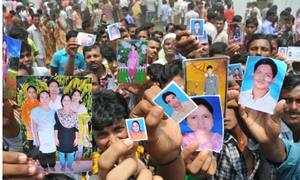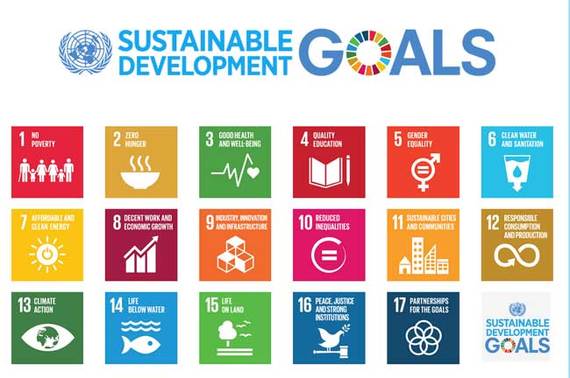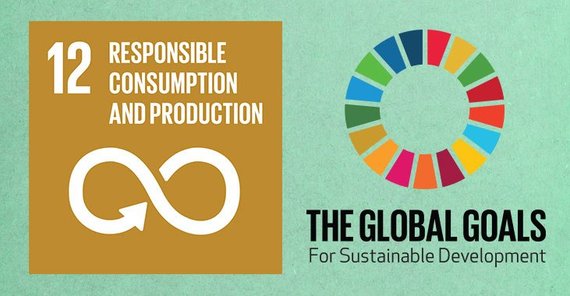
April 24th marked the third anniversary of the Rana Plaza tragedy in Bangladesh, in which over 1,000 garment factory workers lost their lives and more than 2,500 were gravely injured while producing clothes for big apparel brands. The scale of the Rana Plaza tragedy left consumers around the world questioning where their clothes were made, by whom and under what conditions? Unfortunately, tragedies like these are not uncommon, although, they do not always make the news.
Discussions about exploitative labour conditions and forced labour can leave us feeling overwhelmed and helpless. In a world of fast food, fast fashion, and fast technology, where should we even begin in order to make a difference? How do we address our society's constant demand for newer, better, faster, and cheaper products, which is relentlessly driving the search for low cost labour and higher profit margins? How can we as consumers help change the status quo and bring about a more equitable system; a more soulful economy? These are tough questions to answer; but if the countless sweatshop campaigns directed at the big brands in the 1990s and the worldwide outrage at the Rana Plaza tragedy three years ago have taught us anything, it is that consumers have the power to drive change.
Consumer outrage, our purchasing choices, and our demands can and have triggered several positive changes to labour conditions and worker protection around the world. As Diane Osgood points out in her article, "Shop Like You Mean It: Why Ethical Fashion Matters" - "with each dollar we spend, we vote for the world we want". Every time we buy a product - whether it is clothes, food, electronics, or jewelry, we illustrate our preferences to retailers. By turning to ethically sourced and produced goods, we as consumers can mark our preference for products not produced under exploitative social and environmental conditions, but rather those that encourage fair labour practices, support and dignify workers, nourish the environment, and foster values. With this immense power, we can contribute to positive change that reverberates throughout the value chain, and make a difference for the people who are making our clothes, assembling our electronics, and yes, mining our diamonds. In this way, we can also send clear signals to the market, and incentivize the industry to follow suit.
In the case of Bangladesh, the worldwide public outrage at the Rana Plaza incident prompted the creation of the Fire and Building Safety Accord, to which, over 200 apparel brands, retailers and importers have signed on, and which, we will hopefully see being fully enforced. At the same time, we are also starting to witness the emergence of new laws across the world, which make parent companies liable for human rights' violations, as well as the health and environmental damages committed abroad by subsidiaries, and even by suppliers and vendors. This could represent a civil and criminal liability for the company, if breaching the duty of care, or for failing taking enough preventive measures to avert the damage from occurring.
Essentially, what was once considered a moral obligation at best, and normal business practice for most, is today characterized as Environmental, Social, and Governance (ESG) issues, for which, companies get punished by stakeholders and the courts. ESG factors are a subset of non-financial indicators, which can affect the performance of investment portfolios. Institutional investors are therefore starting to give substantial consideration to ESG-related risks and opportunities that may significantly impact their financial returns. In the boardroom, the C-Suite Executives are now realizing that in order to keep their social license to operate, they must not only reduce their negative impact, but also improve the positives, align sustainability with their core operations, and communicate it effectively to their stakeholders.
What smaller, soulful economy businesses have embarked on is a force for good, but for it to become a mainstream movement, we need to make 'soulful economy' scalable. This will involve making more conscious purchasing decisions, which will not only help our own souls and conscience, but also make a difference in the lives of those millions of others who remain invisible in the current economic model. In this sense, 2015 was a groundbreaking year - it was the year when the Millennium Development Goals (MDGs) were replaced by the Sustainable Development Goals (SDGs) with a transformative and inclusive 2030 Agenda for Sustainable Development that was adopted by world leaders and global businesses in September at the United Nations. These 17 Sustainable Development Goals promote global prosperity, people's well-being, and protection of the environment; targeting both the developed and developing countries, and the public and the private sector. 2015 also marked the year that the Modern Slavery Act in the U.K. was passed, having tremendous implications for businesses and the people it protects.
The private sector is also connecting the dots and taking responsibility by aligning its business plans and strategies with the Sustainable Development Goals (SDGs). Initial surveys conducted among businesses, civil society and stakeholders to identify the prioritized SDGs show that globally, SDG 8 - Decent Work and Economic Growth" is the clear frontrunner. Understandably, this is one of the key SDGs, which has a direct impact on labour conditions, human rights, equality; and also one that also impacts all the other SDGs: including Zero Poverty (SDG 1), Zero Hunger (SDG 2), Good Health and Well-Being (SDG 3), Industry Innovation and Infrastructure (SDG 9) and Reduced Inequalities (SDG 10).

Needless to say, all the 17 Goals are of utmost importance and are remarkably interlinked. However, it begs the question as to how we are to address issues such as forced labour, exploitation, and inequality without considering SDG 12 - Responsible Consumption and Production? Francine LeFrak mentions in her article "The Runaway Challenge: Fashion Week for the Soulful Shopper" that "Americans today buy 400 percent more clothing than they did 20 years ago and consumerism now makes up 72 percent of the U.S. economy". That is just clothing. Big electronics brands come out with upgraded, nicer, and more powerful gadgets like phones and tablets every year. Pause now, for a moment, and think about how consumption has gone up in every area of our lives. Next, think about the impact - social, ethical, and environmental. How many Rana Plaza's can be prevented in the future, if we move away from the mindless, bargain driven consumption to a more ethical and soulful consumption?

The 17 SDGs are immensely motivating, and inspire everyone to have a tangible impact. These goals serve as useful pointers to help us address some of the most pressing social and environmental issues of our times, thus bringing the world closer to a safe and sustainable future. As Mahatma Gandhi famously said, "Be the change you wish to see". When we change our day to day decisions, we all stand to benefit. It is our decision whether we leave a large footprint of slavery for our future generations, or a more soulful legacy, a footprint of humanity, empathy, love, and respect for people and the planet. The choice is clear and it is now time for us to vote with our wallets.